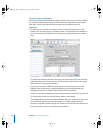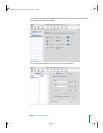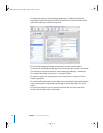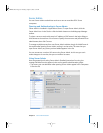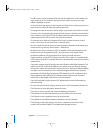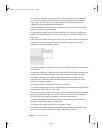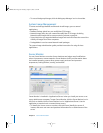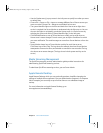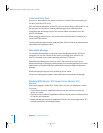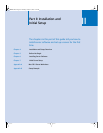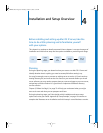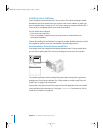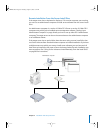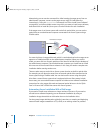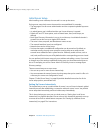
60 Chapter 3 Server Administration
Command-Line Tools
If you are an administrator who prefers to work in a command-line environment, you
can do so with Mac OS X Server.
From the Terminal application in Mac OS X, you can use the built-in UNIX shells (sh, csh,
tsh, zsh, bash) to use tools for installing and setting up server software and for
configuring and monitoring services. You can also submit commands from a non-
Mac OS X computer.
When managing remote servers, you conduct secure administration by working in a
Secure Shell (SSH) session.
The command-line administration guide describes Terminal, SSH, server administration
commands, and configuration files.
Macintosh Manager
You use Macintosh Manager to administer client management for Mac OS 9 client
computers. You can use it locally (at the server) or remotely (from a Mac OS 9 or
Mac OS X computer on the same network as your Mac OS X Server).
Open Macintosh Manager by clicking its icon in the Dock. Log in using a server,
Macintosh Manager, or workgroup administrator user name and password. As a server
administrator, you automatically have global administrator privileges for Macintosh
Manager.
Macintosh Manager support is also provided by Server Admin.
See the user management guide for information about using Macintosh Manager.
Working With Version 10.2 Servers From Version 10.3
Servers
When you’re logged in to Mac OS X Server version 10.3, you can administer a version
10.2 server:
• Server Admin, located in /Applications/Server/, lets you monitor the status of a
version 10.2 server.
• Directory Access, located in /Applications/Utilities/, can be used to configure version
10.2 servers and computers.
• Workgroup Manager, located in /Applications/Server/, lets you manage version 10.2
accounts, preferences, and sharing settings.
LL2343.Book Page 60 Thursday, August 14, 2003 5:12 PM



